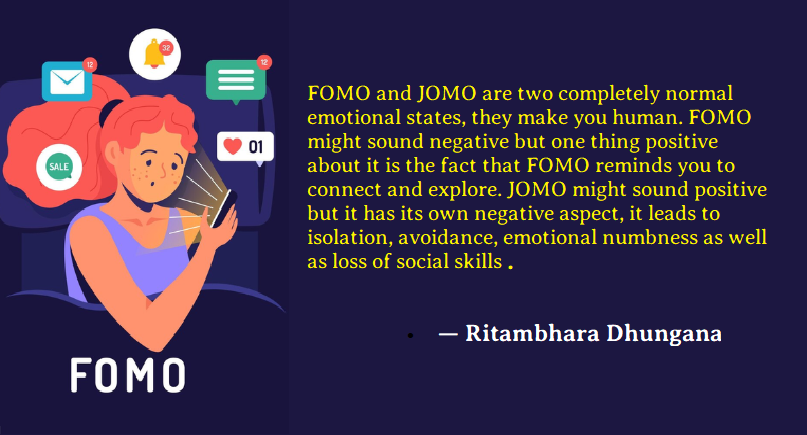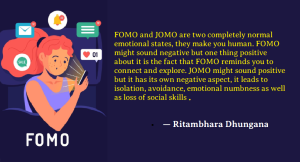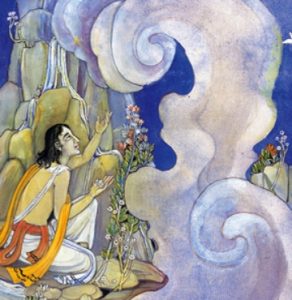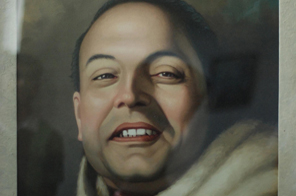Ritambhara Dhungana
You’re at home, in bed, looking through your phone when you see your friend’s post from a party or an exciting event, laughing and having a blast. You can’t help but think, “That’s insane! They’re having so much fun, and I’m missing out on it again. My life is dull and monotonous.” That is known as FOMO, or the Fear of Missing Out; a term that first emerged back in 2004.
FOMO is in almost everyone today. By watching a couple of videos and doing a bit of research, I figured out that FOMO isn’t just a short-lived feeling. FOMO comes from our psychological need to feel included and connected to others. When we see people having experiences we aren’t part of, it can make us feel triggered, left out or not good enough. Social media only makes it worse, since most people post only their happiest moments, and that constant comparison slowly starts to affect how we perceive ourselves. Research shows that such constant comparison makes an individual more anxious, lowers their self-esteem, and makes most young people feel alienated. FOMO can also cause dissatisfaction, stress, or even procrastination as we try to keep up with others.
I’ve experienced FOMO many times myself, and that’s not surprising since it is something that almost everyone experiences at some point in their lives. I try my best not to miss out on something even if I’m tired or it is inopportune. One of my earliest recollections of FOMO is a particularly clear one. When I was around eight years old, I had attended my friend’s Gunyocholo party. I was not very well back then; I had tonsillitis, a very high temperature, but I just had this terrible fear of missing out. I was worried that I’d be missing out on all the fun and everyone else would enjoy themselves, go ahead and discuss it later, while I’d be stuck indoors. I even shed tears and managed to convince my mom to take me there at any cost. She accompanied me to look after me, of course. All my friends were getting ice cream, and I started wanting some too, but because I was sick, I was not permitted to have any. I was not even allowed to have fun at the party as much. I felt like I was kept under surveillance, and I ended up feeling completely left out, FOMO was at its peak. Missing out is not just the instance of your interest, the activity, or the event; it’s all about being a part of other people’s joy that they are experiencing.
The next one we have is JOMO, or The Joy of Missing Out. JOMO is completely opposite of FOMO. JOMO is being okay with where you are, what you’re doing, instead of being worried or nervous about what someone else is doing. To be completely honest with you all, JOMO is not something I experience very often. However, I do know a friend who experiences JOMO. She’s a person who’s okay with being in her comfort zone and doesn’t even worry much about what other people are up to. She’s not an overly social person; it definitely has its downsides in a sense, but she doesn’t mind being in her bed while others are having “the time of their lives”. That’s a true representation of JOMO I’ve seen. Her carefree nature reminds me that JOMO will probably never be my thing. I’ll always worry about my social life. FOMO is something I’ll probably carry forever, something that’ll keep sticking with me wherever I go.
To conclude, I’d say that FOMO and JOMO are two completely normal emotional states, they make you human. FOMO might sound negative but one thing positive about it is the fact that FOMO reminds you to connect and explore. JOMO might sound positive but it has its own negative aspect, it leads to isolation, avoidance, emotional numbness as well as loss of social skills. Everything has its ups and downs, and too much of anything is harmful, as they say; even too much sugar can taste bitter. The same goes for feelings like FOMO and JOMO, it definitely is difficult but it’s all about maintaining a balance.
(Dhungana is a student of Uniglobe S/S College, Kamaladi, Kathmandu)










